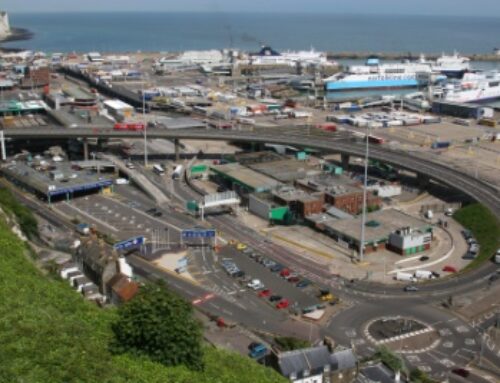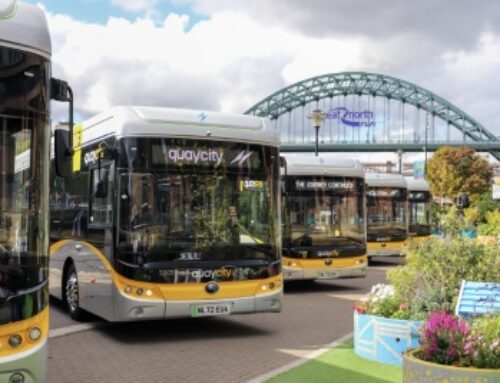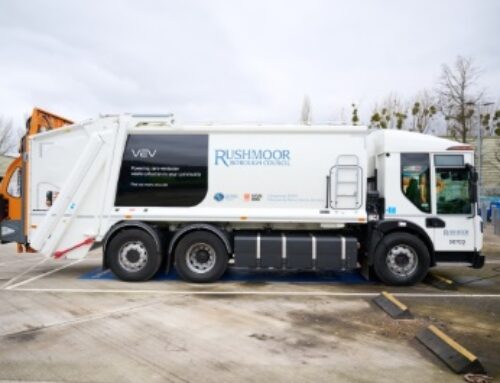AdBlue supply may face threat from gas price rises
The high gas prices that have caused the much-reported shortages in industrial CO2 supply may yet have a more serious consequence: an interruption in the supply of AdBlue that modern trucks, other diesel-engined vehicles, plant and machinery all require.
Industrial CO2 is a by-product of ammonia production, and ammonia is the key active ingredient in AdBlue, which is needed to make vehicle engines conform to Euro V and VI exhaust emissions limits. Built-in environmental safeguards will shut these engines down if their AdBlue tanks run dry.
A shortage of AdBlue is now a very real prospect according to a senior AdBlue industry figure in the UK, who spoke exclusively to Transport Operator.
“While it seems that everyone is only concerned with fizzy pop, beer and food prices, there is a possible wider implication and that is the trucks can’t run!” he said.
“With so many urea production sites in Europe closing for either annual maintenance or the because of gas prices being so high, they cannot produce the ammonia needed for AdBlue at a cost-effective price. So, commercially, it is better to close the plant.
“The sites that have planned closures for maintenance are also unlikely to restart as the restart process uses three times the energy that it does to run the plant. Unless the EU support production facilities within Europe, similar to what the UK did with CF Fertilisers UK Ltd, things are unlikely to change until there is a downward movement in the gas price.
“The consequences of this is a possible shortage of automotive urea (AMU) to produce AdBlue, and also shortage of the ready AdBlue that is produced directly in the fertiliser plants. It is very likely that due to high demand for urea and short supply we will see the cost of AdBlue increasing in Q4 2021 and into Q1 next year.
“Added to this, the ongoing driver shortage is causing delays in the supply of packed goods, and bottled AdBlue supplies may well be affected.
“For now it is about the increased costs, but the situation will become more difficult in November, which is always the busiest month in the market in readiness for Christmas.
“However, if there no CO2 or food maybe the AdBlue demand will not be so high?” he joked grimly.
Total demand for AdBlue in the UK market is estimated at around 480 million litres, met in the main by three large players each with roughly the same market share. This appetite is currently damped somewhat by the Covid-driven decline in coach and bus mileage, which our insider believes may never return to 2019 levels.
But he cautions that demand for AdBlue from truck operators has remained stable: “It is only the shortage of drivers that is suppressing demand in the truck market.”
Demand for AdBlue from the passenger car sector has declined in line with demand for diesel cars, but is rising steeply for vans.
”In just four years we have seen new diesel car registrations fall from near 50/50 with petrol to just 17 per cent today, but registrations and use of diesel vans is flourishing.
“Most of the smaller vehicle market AdBlue demand is met by product sold in 10-litre cans: demand for these is estimated at four million cans a year.
“There is also growing demand from rail, shipping and power-generation.
“The latter two use AUS40, which is a 40 per cent concentrate rather than the 32.5 per cent that is AdBlue. All three could be affected in the same way.”
Wholesale gas prices have soared over the past year amid a global shortage caused by colder than usual winters across Europe and Asia last year, disinvestment in fossil fuels, and the choking of supply to Europe from Russia.
Fertiliser giant Yara, which produces the Air1 brand AdBlue, is understood to have reduced its European ammonia production by 40 per cent in mid-September as it responded to the increasing gas prices.
In a press statement in late September, the company reiterated its commitment to continuing supplies of ammonia wherever possible; however, to secure this it said it would need to implement a temporary surcharge on some products, effective as of 1 October until further notice, subject to monthly review.
For Air1 AdBlue, the sur-charge is equivalent to 6.3 euro cents per litre (5.4 pence).
Jorge Noval, the president of Yara Industrial Solutions, said: “We are committed to maintaining reliable supplies to our customers wherever possible.












